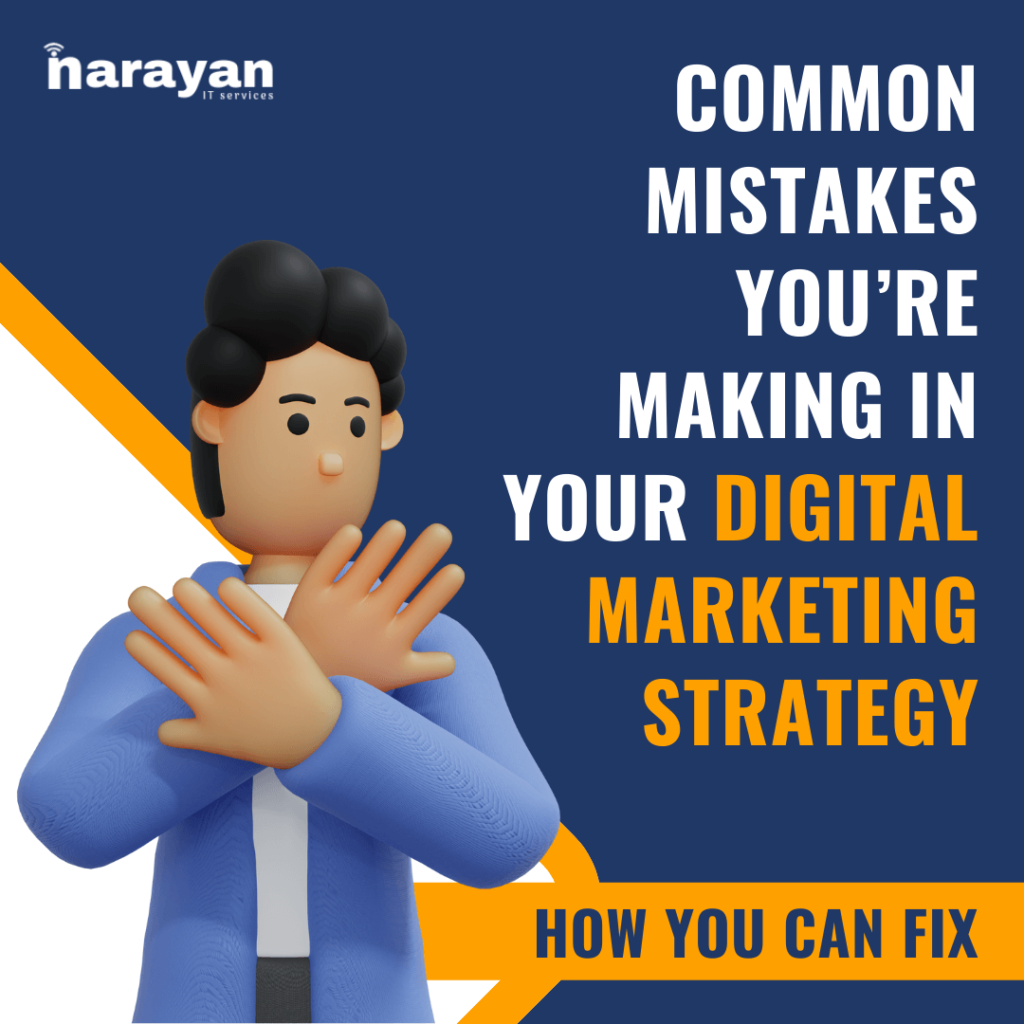These days, most businesses have a digital marketing strategy. But even though you’ve got the tools and the knowledge to make your company’s online presence stronger than ever, there are still some mistakes that can trip you up.
Here are some common mistakes we see companies make when they’re trying to get their digital marketing right:
- Not having a clear idea of what they want to achieve.
- Not knowing enough about their audience.
- Thinking that one size fits all.
- Focusing on short-term results rather than long-term growth.
- Not investing enough time and effort into their content creation process.
- Relying too heavily on automated processes for content distribution/management.
- Not keeping track of how well their content is doing (or how it could be improved) in terms of engagement & traffic generation.
- Not making it easy for people to interact with them via social media channels (e.g., not responding quickly enough or at all)
- Failing to track conversions accurately (e.g., tracking only leads instead of sales or sign-ups or whatever else matters most)
- Thinking that there’s one “right way” to do everything
- Not Tracking Your AdWords Campaigns
- Missing out on mobile advertising because you don’t think it will work for your business (even though 85% of all internet traffic is from mobile devices)
- Not using an analytics platform to track results and see where the opportunities are in your marketing efforts—and then act on them
- Giving up too soon : on new strategies even though they might work if given enough time and effort—don’t give up too soon! Try harder! You’ll get there eventually if you keep trying. You can’t know whether or not your ads are working if you don’t track them! You might think that because your site is getting more traffic from organic search results, your PPC campaign isn’t working – but what if those new visitors aren’t converting? If you haven’t set up conversion tracking on AdWords, then you’ll never know,
- Not Segmenting Your Traffic Correctly : There are three types of traffic that come from search engines: Direct, Referral, and Organic. Direct traffic refers to people who typed in your URL directly into their browser; Referral traffic refers to people who clicked on an organic link on another website; Organic traffic refers to people who came across
- Not having an expert guide you through your strategy : You need someone who knows what they’re doing to help you develop a plan and execute it effectively. Otherwise, you could end up wasting a lot of time and money on something that won’t work for your business.
- Not knowing how to measure ROI on social media campaigns or other paid advertising efforts (or not thinking it’s important) : If you don’t know how much money you’re spending on digital marketing, or how much revenue it brings in, then how will you know if it’s working? Without measuring ROI, there’s no way to tell if a campaign is worth continuing or whether changes need to be made based on what kind of results it generates for your business
Not using a CRM: If you don’t have a CRM, then how do you know which leads are hot? How do you know where they’re coming from? A CRM makes it easy to track all of this information so that when something changes—or when something goes wrong—you’ll know exactly where to look for answers.
- Focusing only on SEO : SEO isn’t everything! It’s important, but if all your efforts are focused solely on getting more traffic from search engines and not. The digital marketing industry is changing at a rapid pace, and the old ways of doing things just won’t cut it anymore. You need to be on top of your game if you want to stay ahead of the curve, especially in this day and age where consumers have so much choice.
Getting distracted by shiny objects instead of focusing on what works and doesn’t work for your business/client base (don’t get caught up in fads like “content marketing” if it’s not a good fit for your client)

